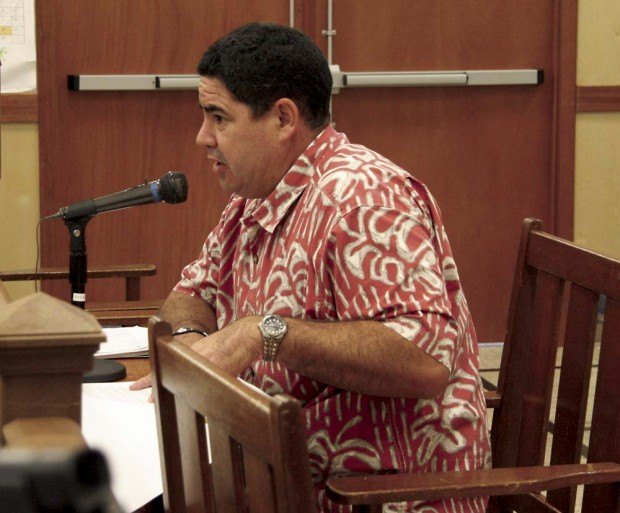NAWILIWILI — After enduring a two-day per month furlough since July 1, county workers may resume their regular schedule starting Jan. 1. The Kaua‘i County Council on Wednesday unanimously approved a bill on first reading that would end furloughs and
NAWILIWILI — After enduring a two-day per month furlough since July 1, county workers may resume their regular schedule starting Jan. 1.
The Kaua‘i County Council on Wednesday unanimously approved a bill on first reading that would end furloughs and restore pay cuts.
“The county administration is recommending the elimination of furloughs based on the strong fiscal condition of the county,” Finance Director Wally Rezentes Jr. told council members at their last regular meeting this year.
The county’s unassigned fund balance increased to $43.1 million in Fiscal Year 2010, from $32.8 million in Fiscal Year 2009, county documents show.
Rezentes said Kaua‘i taxpayers have benefited because the council and the administration have been fiscally conservative over the years.
The administration recommended the council approve an unassigned fund balance policy in the general fund of no less than 20 percent of expenditures in the county operating budget.
For FY11, the county had an operating budget of nearly $150 million.
Rezentes said the Government Finance Officers Association recommends the level of reserves to be based on two months of expenditures, which would mean 16.7 percent of the county’s budget.
The administration, however, has a “number of significant revenue sources and expenditures” that are not fully under the control of the county, so the administration is recommending the level of reserves to be higher than what GFOA recommends.
Some of the reasons the administration is recommending a 20 percent reserve fund include fluctuating real estate values, hotel room taxes that could be reduced or taken away by the state government, rising health care costs and potential collective bargaining cost increases.
Wally said the revenues for FY12, which will begin July 1, 2011, will grow with the sewer fee increase and the solid waste fund residential user fee. Both fees will be effective in July, and are expected to bring in a combined $9.5 million.
Real estate taxes in FY12 are projected to slightly decline over the current fiscal year, but a small increase in the hotel room taxes may offset that, according to Rezentes.
Proposed Draft Bill 2388 will go through public hearing and the Committee of the Whole on Jan. 12 at the temporary Council Chambers in Nawiliwili.
Visit www.kauai.gov for meeting agendas, live webcasts and more information.


